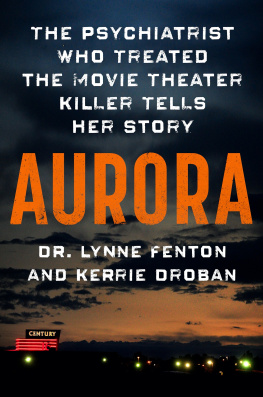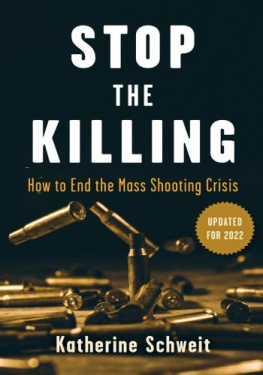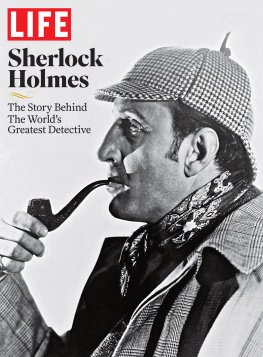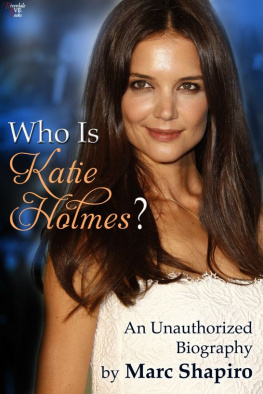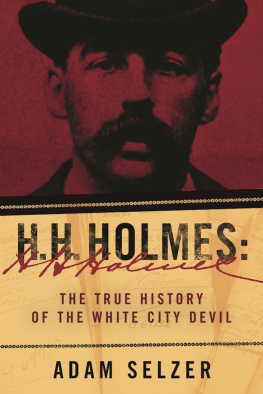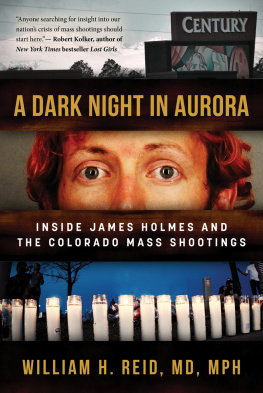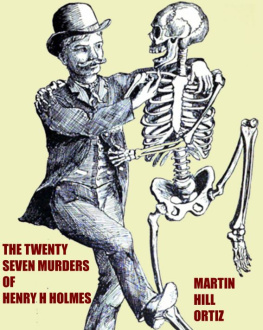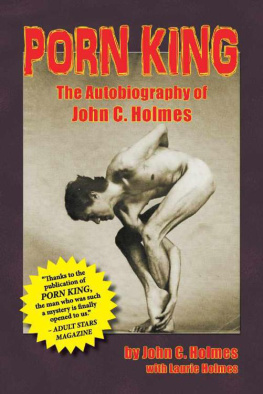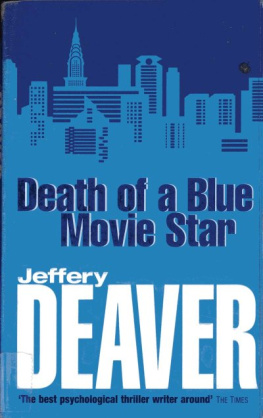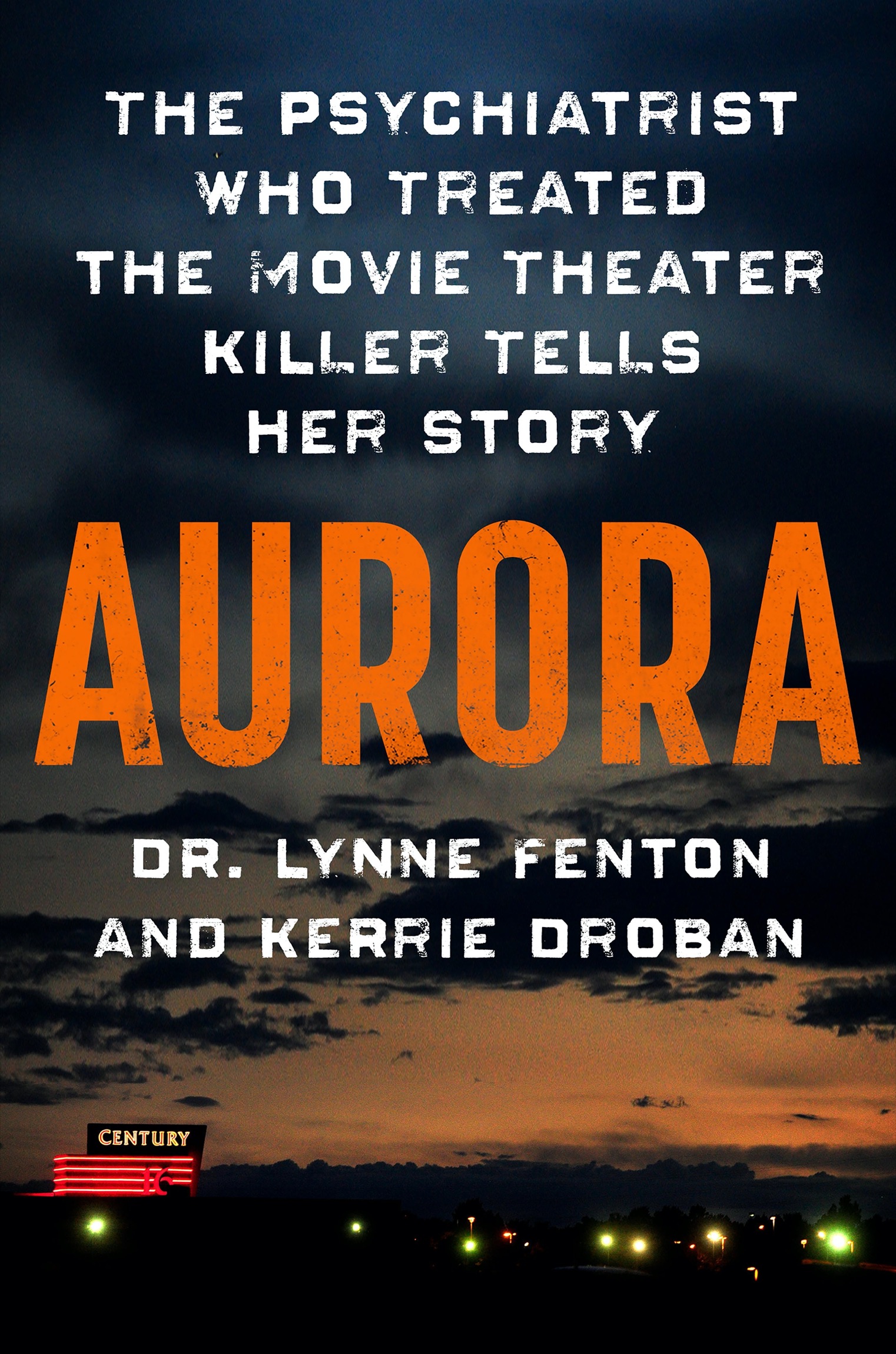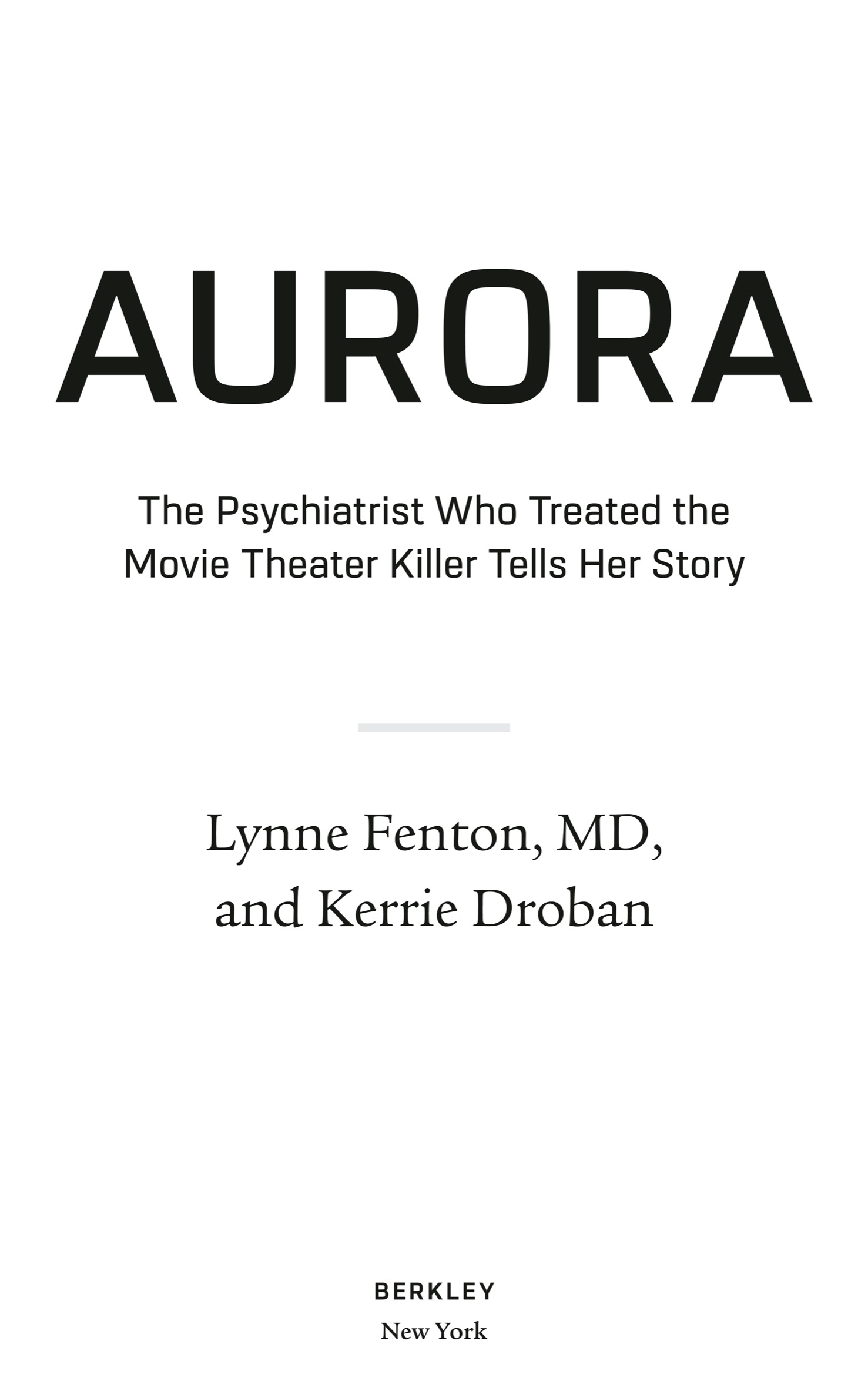BERKLEY
An imprint of Penguin Random House LLC
penguinrandomhouse.com

Copyright 2022 by Lynne Fenton, MD, and Kerrie Droban
Penguin Random House supports copyright. Copyright fuels creativity, encourages diverse voices, promotes free speech, and creates a vibrant culture. Thank you for buying an authorized edition of this book and for complying with copyright laws by not reproducing, scanning, or distributing any part of it in any form without permission. You are supporting writers and allowing Penguin Random House to continue to publish books for every reader.
BERKLEY and the BERKLEY & B colophon are registered trademarks of Penguin Random House LLC.
Library of Congress Cataloging-in-Publication Data
Names: Fenton, Lynne, author. | Droban, Kerrie, author.
Title: Aurora: the psychiatrist who treated the movie theater killer tells her story / Lynne Fenton, MD and Kerrie Droban.
Description: First edition. | New York : Berkley, [2022]
Identifiers: LCCN 2021057347 (print) | LCCN 2021057348 (ebook) | ISBN 9780593101292 (hardcover) | ISBN 9780593101308 (ebook)
Subjects: LCSH: Holmes, James, 1987- | Fenton, Lynne. | Mass murderColoradoAurora. | Mass murderersColoradoAuroraPsychology. | Mental health personnel and patientColoradoAurora. | Colorado Shooting, Aurora Colo., 2012.
Classification: LCC HV6536.55.A97 F46 2022 (print) | LCC HV6536.55.A97 (ebook) | DDC 364.152/34097888dc23/eng/20220131
LC record available at https://lccn.loc.gov/2021057347
LC ebook record available at https://lccn.loc.gov/2021057348
Cover image by AAron Ontiveroz / Denver Post / Getty Images
Cover design by Steve Meditz
Book design by Ashley Tucker, adapted for ebook by Maggie Hunt
While the author has made every effort to provide accurate telephone numbers, Internet addresses and other contact information at the time of publication, neither the publisher nor the author assumes any responsibility for errors, or for changes that occur after publication. Further, publisher does not have any control over and does not assume any responsibility for author or third-party Web sites or their content.
pid_prh_6.0_140432674_c0_r0
[These] are the images that America needs... If you can verbally paint that picturefor them to see and imagine, then perhaps we can change hearts and minds.
Mother of slain victim Jessica Ghawi
Dedicated to the victims and survivors of James Holmes unspeakable atrocities, for their courage and, most especially, their voice
CONTENTS
AUTHORS NOTE
This is the story of Lynne Fenton, MD, the treating psychiatrist of mass murderer James Holmes, whose horrific crimes have left us all reeling and asking, Why? He was unique among mass shooters for deliberately surviving his massacre, to be publicly prosecuted and condemned to serve an eternity as a case study in evil. Dr. Fentons legacy is equally extraordinary, as the only psychiatrist in the history of the United States to have been publicly outed, vilified by the press and media, her life threatened, and subjected to an internal investigation by her own university. For nearly three years, she was under court order to remain silent for the integrity of the prosecution. Now, for the first time, the trial judge having lifted the gag order and unsealed all confidential records, Dr. Fenton shares her harrowing experiences as the target of public wrath and reveals her chilling sessions with Holmes, a patient who she believed personified evil.
Wherever possible, names have been changed to protect identities and privacy. In addition to hundreds of hours of interviews with Dr. Fenton and her colleagues, this book relies on more than seventy-five thousand pages of discovery, which include police reports, Holmes infamous notebook, hundreds of audio and video recordings, countless expert evaluations, transcripts, trial testimony, witness interviews, emails, texts and G-Chats between Holmes and others, and Holmes nine video-recorded pretrial interviews (nearly twenty-three hours in length) with his court-appointed psychiatrist, Dr. William Reid, offering what Dr. Reid described as an unprecedented look behind the curtain into his memories, thoughts, explanations and impressions as expressed in his own words.
The many quotes and excerpts from transcripts you will read, while sometimes graphic and disturbing, are intended to verbally paint the picture that twelve innocent people lost their lives and countless others (including Dr. Fentons) were forever changed, forever scarred, by a highly intelligent, ruthless killer whose chosen field of study was his own mind. Even more chilling was the fact that Holmes, surrounded by the brightest university academicians, selected for one of the most strenuous and prestigious neuroscience programs in the country and treated by nationally renowned and highly respected psychiatrists, eluded them all.
As a former prosecutor and capital defense attorney, I am well versed in death penalty litigation and the many challenges of bringing justice to the victims of horrific crimes. But after spending more than a year writing about one of the most monstrous minds of this century, it will take me many more years to recover. And though the lives of all those tragically impacted by Holmes senseless massacre will never be made whole again, and the twelve who died at his hands are lost forever, it is our hope that Dr. Fentons story may bring some answers and encourage us all to continue to share our determination, strength, and experiences to effect lasting change.
Kerrie Droban
PART I
CHAPTER 1
HERE WE GO
March 15, 2012
(127 days before the massacre)
They laugh at me because Im different. I laugh at them because theyre all the same... And... here... we... go...
The Joker, The Dark Knight (2008)
FENTON
Hes coming, a young girl sobbed to dispatch, her frantic whisper barely audible over the bullet blasts and piercing screams. Its a boy with a gun... Male voices in the background, loud and calm, ordered, Everybody get up, this is your day to die!
As a psychiatrist on the faculty of the University of Colorados School of Medicine and director of the Student Mental Health Center on the Anschutz campus, I lectured yearly on mass shootings and school violence, the last in a six-session course on student mental health. The Columbine massacre seemed a fitting topic since many in my audience of fourth-year psychiatry residents had lived in the Denver area at the time of the shooting and, like the murdered victims, would have been in high school then. The 911 screams reminded them what it must have felt like for the Columbine students and faculty in those moments before two psychopaths blew apart their worlds, instilling in them fear, panic, and an often-noted perception of weightlessness. Their ears were assaulted by pops, blasts, and booms, followed by what some survivors later described as a weird silence lasting only seconds. Victims scrambled for cover in classrooms and libraries, ducking behind bookshelves and cubicles made of flimsy particleboard, crouching beneath metal chairs, hiding under computer desks, maybe foolishly hoping that

